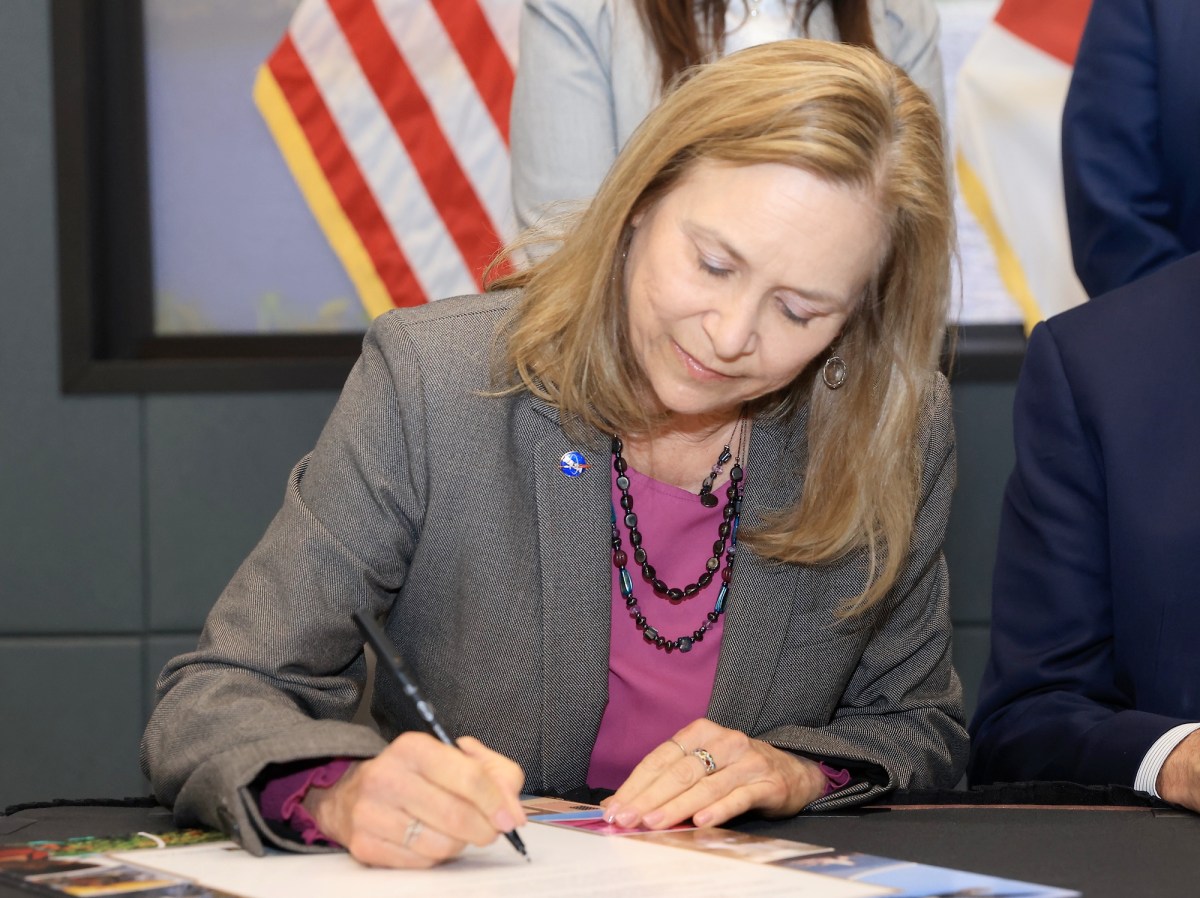WASHINGTON — Top Democrats on the House Science Committee say they want more information about the work the Department of Government Efficiency (DOGE) is doing at NASA, calling the lack of transparency “ominous and unacceptable.”In a Feb. 21 letter to NASA Acting Administrator Janet Petro, three members of the House Science Committee said the agency’s response to an earlier letter about what DOGE, the government initiative with SpaceX Chief Executive Elon Musk as its de facto leader, was doing at NASA was insufficient.The original letter, signed by Reps. Zoe Lofgren (D-Calif.) and Valerie Foushee (D-N.C.), ranking members of the full committee and its space subcommittee respectively, asked if DOGE had accessed any classified or proprietary data and requested that NASA “pledge to protect such data, information, or systems from any and all access that would violate any and all NASA policies and procedures, federal laws and regulations, and official protocols.”The agency’s response, submitted Feb. 13 by Marc Hone, acting associate administrator for legislative and intergovernmental affairs, said that DOGE had found a person who would work at NASA in support of the organization, but did not identify the person or provide additional information about that person’s work.“I have confirmed with NASA’s Office of the Chief Information Officer and the Office of Protective Services that DOGE has identified an individual who will be employed by NASA,” Hone wrote. “As such, he will have all necessary access to NASA owned or managed resources as required for his duties, in compliance with all laws and regulations regarding the protection of IT resources and classified information. NASA also complies with all applicable Executive Orders and associated supplemental guidance.”In their new letter, Lofgren and Foushee, joined by Rep. Emilia Sykes (D-Ohio), ranking member of the investigations and oversight committee, said the agency’s response was unsatisfactory. “The lack of transparency surrounding DOGE’s presence and activities within NASA is ominous and unacceptable,” they wrote.They wrote that it was “critical” that NASA identify the person working for DOGE inside NASA, citing concerns about the backgrounds of other DOGE employees and because it appeared DOGE assigned that person to NASA on its own. “If true, DOGE’s power to embed a senior official at NASA without the agency’s input or approval makes the Committee’s oversight of this individual all the more vital,” they wrote.They also noted a lack of information about what DOGE will be doing at NASA. “We do not know whether his primary function will be to observe agency activities; to advise on agency policies; or perhaps to exercise an extraordinary decision-making authority to the policymaking process, procurement actions, or operational matters,” the letter stated. “We do not even know whether this individual will report to the NASA Administrator, to another senior NASA official, or directly to the CEO of SpaceX, Elon Musk.”Musk’s role with both DOGE and SpaceX has brought up consistent concerns about conflicts of interest. The agency’s response did not mention how the agency was mitigating those conflicts, but Petro told reporters after a Feb. 12 speech that the agency would use its “very strict conflict-of-interest policies” overseen by its legal office.“Setting aside the fact that DOGE employees work for a man who also serves as the CEO of SpaceX – an inherent conflict of interest if there ever was one – NASA’s vetting arrangement requires elaboration,” the agency stated.The members included in their letter 11 questions about the activities of DOGE within NASA. They range from the name of the “DOGE Agent” working at NASA to that person’s access to classified and sensitive information and how the agency is managing conflicts of interest. They requested a response from NASA by March 7.Petro noted in a Feb. 14 memo to agency employees that DOGE “has arrived onsite at the agency. We anticipate that they will start reviewing our contracts to find efficiencies.”DOGE, on its website, has listed “savings” it has identified through canceling contracts and other measures. The only entry for NASA as of Feb. 21 is a subscription to the Politico Pro news service, a contract valued at $10,600. However, the savings listed from canceling the contract was $0.Workforce updatesThe status of NASA’s workforce has been in limbo since anticipated firings of probationary civil servants at the agency on Feb. 18 did not materialize. That reprieve came even as similar firings took place at other government agencies.NASA said Feb. 20 that there would not be sweeping layoffs of probationary civil servants at NASA for the time being. “After working with OPM [Office of Personnel Management] and a careful evaluation of our workforce and mission requirements, probationary separations will be performance-based or voluntary in accordance with agency policy,” an agency spokesperson said in an emailed statement.NASA added that about 5% of its employees, or roughly 900 people, took advantage of a buyout known as the Deferred Resignation Program, where employees resign now but continue to be paid through the end of the fiscal year.Petro, in a Feb. 21 memo to employees, said many of the employees participating in the buyout will start “administrative leave” this week and rest in the coming weeks.She added that probationary employees “align with our mission, contribute to national security or public safety, or fall under another valid exemption category” in the White House’s executive order calling for workforce reductions. “We remain committed to supporting our workforce and ensuring our agency stays strong and ready to meet the challenges ahead, while simultaneously continuing to monitor all employee performance, ensuring American citizens have an excellent and efficient workforce at NASA.”
By Tyler Mitchell
Tyler is a renowned journalist with years of experience covering a wide range of topics including politics, entertainment, and technology. His insightful analysis and compelling storytelling have made him a trusted source for breaking news and expert commentary.
